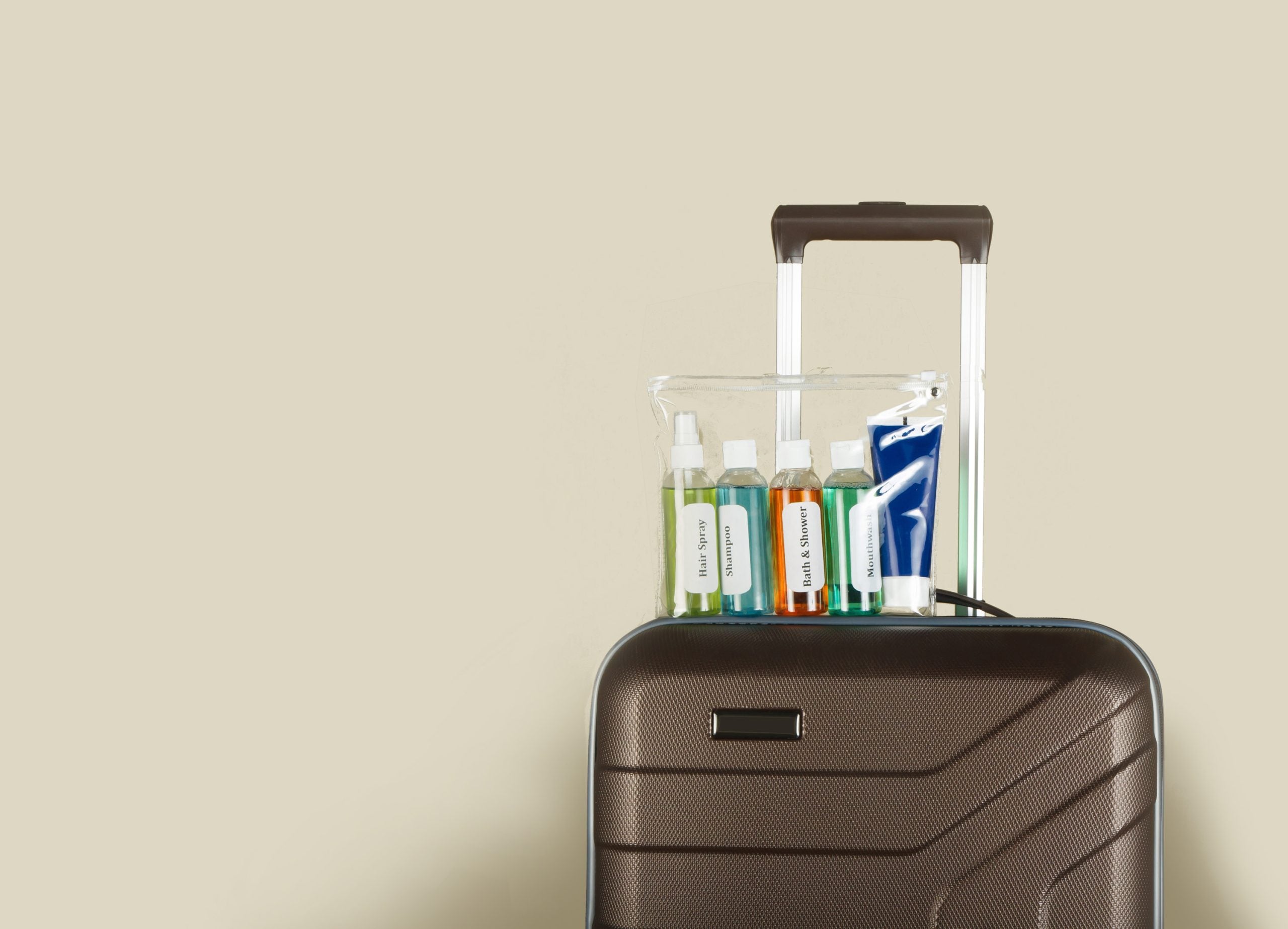
There is a whole generation of young travellers who don’t know what it’s like to be able to take liquids over 100ml in their hand luggage or breeze through security without having to upend their bags to separate their electronic devices.
These limits were put into effect in November 2006 and their introduction marked the end of a total ban on liquids in the cabin imposed three months earlier, after police foiled a plot to blow up planes using explosives hidden in drinks bottles – but the end is in sight.
June 2024 is the new deadline imposed by the UK Government for airports to install new security technology that will mean passengers can travel with larger liquids in their cabin bags and keep them – and their electricals – inside their luggage during the security process.
Over the next two years, UK airports will introduce the latest screening technology into their security checkpoints, marking the beginning of a new era of improved security and a streamlined passenger experience when going through departures. It is hoped that the use of the new technology will also further improve security standards in UK airports.
Christopher Snelling, policy director at The Airport Operators Association (AOA), says: “This investment in next-generation security by the UK’s airport operators will provide a great step forward for UK air travel, matching the best in class around the world. It will make the journey through the UK’s airports easier and air travel itself more pleasant.”
A change in process
The new deadline follows trials conducted at airports since 2018, which demonstrated the effectiveness of new screening equipment that uses CT X-ray technology to provide a 3D image of what is in passengers’ bags, as well as deploying advanced threat detection algorithms.
Similar technology is being utilised in other countries too, including Amsterdam’s Schiphol Airport and at US airports such as Hartsfield-Jackson in Atlanta, Georgia, and O’Hare in Chicago.
Ireland’s Shannon Airport also phased out the 100ml liquid rule last year after a €2.5m investment in a new screening system. This included four Rhode & Schwarz security scanners that deliver a scan result instantly and eliminates the need for any full body hand searches; and four Smiths Detection EDS CB security CT scanners with a gantry that rotates 130 times a minute to give high-definition 3D images.
The new system allows Shannon Airport to process 550 passengers per hour through security, doubling capacity compared with figures prior to the installation.
As part of the project, larger trays designed to hold cabin bags also replaced the smaller airport trays. All liquid, gels, aerosols, creams, pastes, medicines, and special dietary products that would previously have had to be put into clear sealed plastic bags and presented separate to hand luggage can remain packed in cabin bags.
“Our new security screening facility is a fantastic innovation and is the latest enhancement to the passenger journey at Shannon,” says John Francis, security manager at Shannon Airport.
“For our customers, it means a quick, smoother and easier experience. This, along with our combined US TSA and Europe security screening, gives Shannon a unique edge over other airports internationally and lives up to our brand promise to make our airport experience even easier.”
Business as usual, for now
Following the installation of the new screening technology at UK airports in 2024, the liquid container limit will be extended to two litres. However, until then, it’s business as usual at UK airport security.
“This move is part of our plans and we are currently modelling work for the installation of the scanners into a renovated security hall,” says a spokesperson for Edinburgh Airport
“Most importantly is the reminder to passengers that the 100ml rules remain and will be in place until any announcement is made. They should continue to prepare for security by removing liquids and placing them into the clear plastic bags provided.”
“We are currently trialling this new technology and will meet the government’s deadline of June 2024 to implement it across the airport,” adds a Gatwick Airport representative.
“Passengers should continue to follow all existing rules, ensuring they do not carry any liquids, gels, pastes, or creams of more than 100ml in their hand luggage.”



